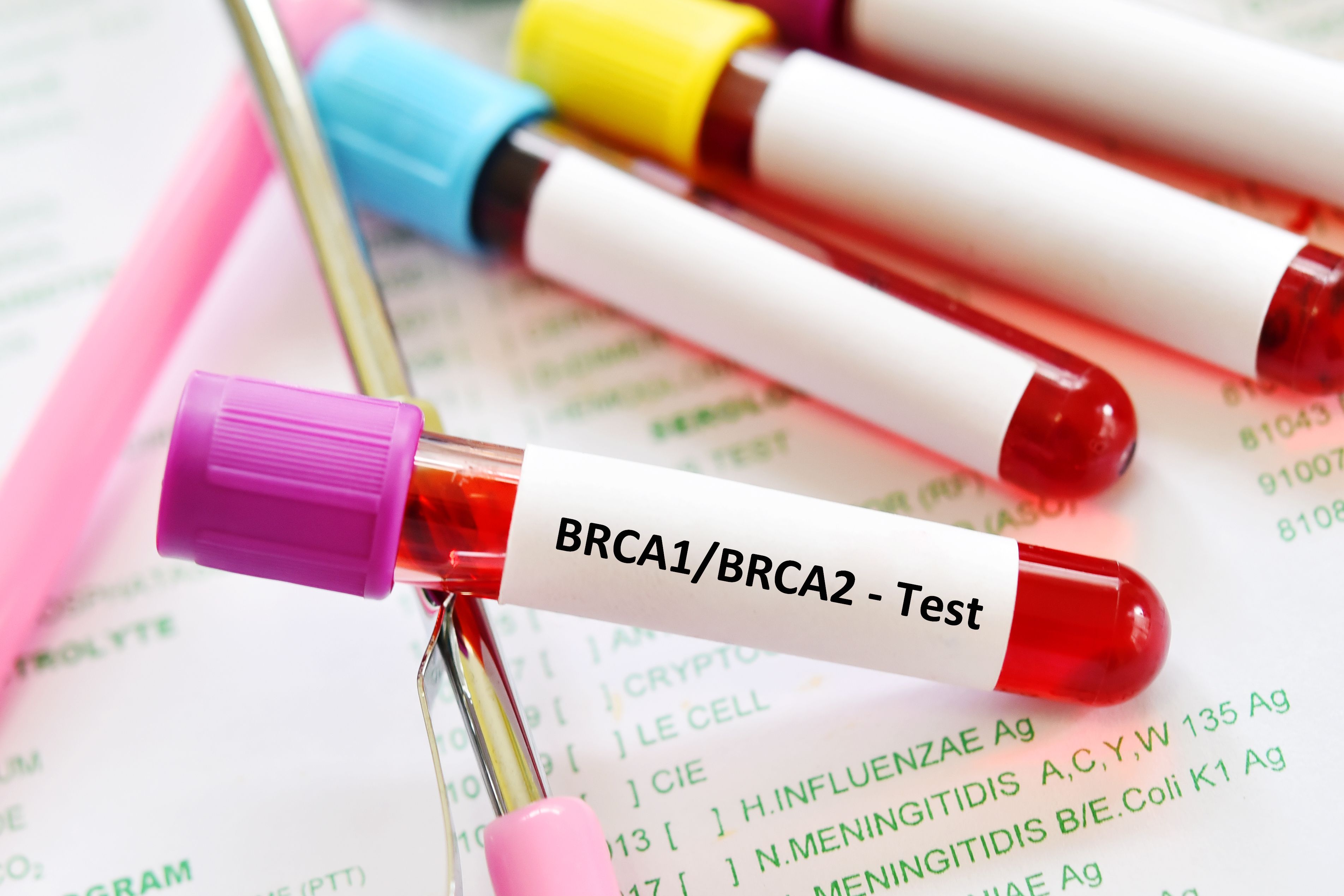- Center on Health Equity & Access
- Clinical
- Health Care Cost
- Health Care Delivery
- Insurance
- Policy
- Technology
- Value-Based Care
Multigene Testing Offers Cost-Effectiveness, Broader Approach to Breast Cancer Prevention
A large US study showed population-based multigene testing might be a cost-effective way to identify women at risk for breast and ovarian cancer, potentially preventing more cases but raising concerns about generalizability and cost.
Blood sample for BRCA test | Image Credit: jarun011 - stock.adobe.com

Regardless of family history, population-based testing was a more cost-efficient way to prevent breast and ovarian cancer compared with the current method of family history-based testing strategies.1 It wasn’t until 1994 when BRCA1 and 1995 when BRCA2 mutations were discovered, allowing for more targeted, individualized cancer preventative care for women showing susceptibility to breast or ovarian cancer.2 Both gene mutations are highly responsible for the hereditary breast and ovarian cancer syndrome, experiencing a lifetime risk between 60% to 80%.
Patients that carry the pathogenic variants of either of BRCA genes are offered early diagnosis options like MRI, including mammography screenings for breast cancer.1 However, multigene tests can combine BRCA mutation testing with other high penetrance genes to detect various forms of cancer-causing genes.
Currently, family history is the main form of BRCA gene mutation testing, which poses an issue because it often fails to identify more than 50% of pathogenic variant carriers in patients. The US Centers for Disease Control and Prevention has also stressed the importance of understanding that not all patients who inherit a BRCA mutation will develop breast or ovarian cancer.3 Additionally, it is not to say that all inherited forms of either cancer are caused by genetic mutations in either BRCA genes.
Between September 1, 2020, and December 15, 2023, a health economic analysis study was conducted to evaluate the cost-effectiveness of multigene testing for women aged 30 to 35 compared with the current family history-based testing.1 The economic evaluation focused on BRCA1, BRCA2, and PALB2 genes since they are linked to high-penetrance genes associated with breast cancer susceptibility.
Participants were offered post-test genetic counseling, even noncarriers, because research shows noncarriers tend to decrease mammography screenings, potentially missing any early detections. Noncarriers receiving counseling will have further guidance provided to them on appropriate screening methods.
An individual-level simulation model was utilized to track health care decisions, clinical events, and health care costs throughout a woman’s lifetime. The main outcomes measured were the quality-adjusted life year (QALY) and incremental cost-effectiveness ratio (ICER). There were 1 million female participants aged between 30 and 35 years from the US included in the simulation study.
Results found population-based multigene testing was more cost-effective compared with family history-based testing, resulting in an incremental cost of $469 per woman, an incremental QALY of .0085 per woman, and an ICER of $55,548 per QALY. Population-based multigene testing displayed prevention against 1338 cases of breast cancer and 663 cases of ovarian cancer compared with family history-based testing. However, population-based testing resulted in 69 cases of excess coronary heart disease and 10 excess coronary heart disease deaths per million women.
In a probabilistic sensitivity analysis, the probability of cost-effectiveness for population-based multigene testing was 100% for all the simulations when applying the $100,000 per QALY willingness-to-pay threshold. During a separate scenario analysis, the cost of the test exceeded $825, and population-based multigene testing was no longer considered cost-effective. Despite the scenario, population-based testing was a cost-effective option even under extreme conditions compared with other model parameters.
The population encompassing mainly White women from the US limits the generalizability of the results, especially since genetic variations and disease risks vary across racial and ethnic groups. The study also utilized a considerably low cost of $300 for the multigene panel test. Research neglected to include cascade testing of family members of the proband in the revised manuscript or family history when modeling cancer risk for variant carriers. This exclusion hinders the study results because cancer risk is elevated for variant carriers that have previous family history of breast or ovarian cancer.
The economic evaluation of population-based multigene testing expressed cost-effectiveness for preventing hereditary breast and ovarian cancer, but the results stress a necessary shift toward comprehensive genetic testing strategies to identify pathogenic variant carriers and enable informed decision-making for personalized risk management.
References:
1. Guo F, Adekanmbi V, Hsu CD, Berenson AB, Kuo Y, Shih YT. Cost-effectiveness of population-based multigene testing for breast and ovarian cancer prevention. JAMA Netw Open. 2024;7(2):e2356078. doi:10.1001/jamanetworkopen.2023.56078
2. Somasundaram K. BRCA1 and BRCA1 genes and inherited breast and/or ovarian cancer: benefits of genetic testing. Indian J Surg Oncol. 2010;1(3):245-249. doi:10.1007/s13193-011-0049-7
3. Family health history and the BRCA1 and BRCA2 genes. US Centers for Disease Control and Prevention. May 15, 2024. Accessed May 31, 2024. https://www.cdc.gov/breast-ovarian-cancer-hereditary/risk-factors/family-health-history-and-the-brca1-and-brca2-genes.html
